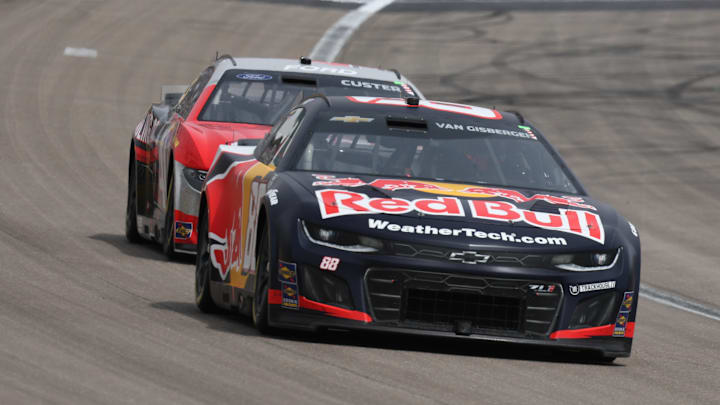In July 2023, Shane van Gisbergen became the first driver in six decades to win on his NASCAR Cup Series debut, pulling off the victory in the inaugural Cup race on the Chicago Street Course.
Van Gisbergen got the win as a part of Trackhouse Racing's PROJECT91 program, which was added by the Justin Marks-owned team in 2022 as a way of giving internationally renowned race car drivers the opportunity to compete at the Cup level.
Van Gisbergen made a couple other starts in the Cup Series across the 2023 and 2024 seasons, and he nearly won again at Watkins Glen International last year.
After signing a development deal with Trackhouse Racing and running the full 2024 Xfinity Series season with Kaulig Racing, he joined Trackhouse Racing full-time for the 2025 Cup Series season when they added a third full-time entry via a charter they acquired from the now-defunct Stewart-Haas Racing.
But at the one-quarter mark of the season, and just past the one-third mark of the regular season, there have been questions surrounding the team's decision to name van Gisbergen the driver of the No. 88 Chevrolet.
Was the SVG signing a desperate "win or bust" measure?
Since Ross Chastain joined Trackhouse Racing in 2022, he has been their clear top driver. He finished runner-up in the championship standings in his first year, and he recorded back-to-back multi-win seasons in his first two years with the organization.
In 2024, he was clearly stronger than teammate Daniel Suarez, who has been with the organization since they started in 2021, yet because Suarez won a nail-biter at Atlanta Motor Speedway, he got into the playoffs. Chastain, denied any victories during the regular season, was left on the outside looking in, even with more total points than eventual series champion Joey Logano.
NASCAR's "win and in" playoff format has been scrutinzed since it was introduced in 2014. Whatever criticism the playoffs got from 2004 to 2013, the modern criticism of the knockout format has been tenfold. It's not just the fact that the winners get in; it's the fact that the far more consistent drivers who score more, sometimes far more, points are left out.
How does this tie into van Gisbergen's struggles?
Aside from the road course race at Circuit of the Americas, where he finished in sixth place and led quite a few laps, van Gisbergen has had an atrocious start to his rookie season. He finds himself down in 34th place in the point standings with a top oval finish of 20th and an average oval finish of 30.63. He has just two top 30 finishes and three DNFs on tracks with exclusively left turns.
He was also the cause of Sunday's only non-stage caution at Bristol Motor Speedway.
It was obvious to anyone who watched him in the Xfinity Series last year that he was nowhere near ready to compete at the sport's top level on the ovals. Yet he did win three road/street course races to get himself into the playoffs, where he ultimately wound up placing 12th of 12 in the standings, even with a P3 effort in the playoff road race at the Charlotte Motor Speedway Roval.
After watching Chastain miss the playoffs last year, despite having had, objectively, a playoff-worthy regular season, is it possible Trackhouse Racing are simply looking to take advantage of the format with van Gisbergen, a three-time Australian Supercars champion who is probably naturally better than anybody else on any given Cup Series road course?
No matter how badly he performs on the ovals, a road or street course win would solve everything. It would lock him into the 16-driver postseason, and that would inherently secure the No. 88 team a much more handsome payout with a coinciding top 16 finish in the owner standings.
It doesn't matter if he's only 34th of 36 full-time drivers in total points scored. Even a few years ago, all race winners had to finish the regular season in the top 30 for their win to count toward playoff eligibilty.
Scrapping that rule made a huge impact last year, when Harrison Burton, last among all 34 full-time drivers in total points scored, got into the postseason with a win at Daytona International Speedway.
When it comes to the NASCAR playoff format, what would otherwise be viewed as a temporary bandage, a single win over a 26-race regular season, becomes a permanent solution, as it secures a driver a playoff spot no matter how the other 25 races go.
Even if Trackhouse Racing had other reasons for naming van Gisbergen the driver of the No. 88 Chevrolet, it's hard to ignore the increasingly obvious elephant in the room. And that elephant in the room leads to the same conclusion that NASCAR fans have been suggesting for decades: the playoff format needs to change.
